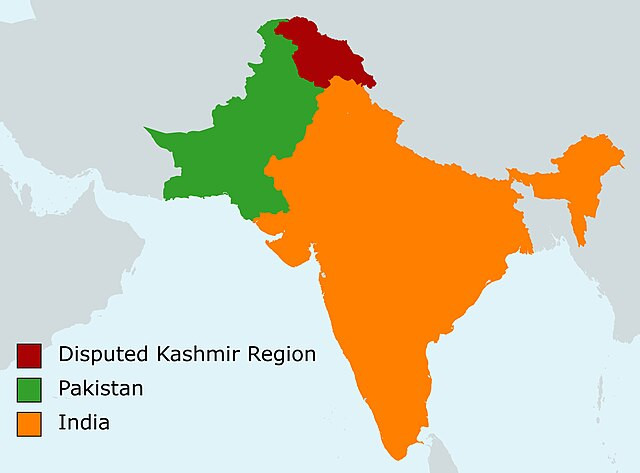Indian and Pakistani forces exchanged gunfire along the Line of Control (LOC) on Friday, escalating tensions triggered by a deadly attack in Kashmir's tourist resort town of Pahalgam that left 26 dead, the worst violence in the region in a quarter-century.
According to Indian military officials speaking to Al Jazeera, Pakistani forces initiated the latest exchange of fire. Pakistan-administered Kashmir official Syed Ashfaq Gilani confirmed to AFP news agency that crossfire occurred, without specifying which side fired first, adding, "There was no firing on the civilian population."
Tuesday's attack in Pahalgam was claimed by The Resistance Front (TRF), allegedly linked to Pakistan-based militant group Lashkar-e-Taiba. Indian authorities have announced a reward of two million rupees ($23,500) for information leading to the capture of three suspects affiliated with the group, designated by the UN as a terrorist organization.
The incident triggered severe diplomatic fallout, prompting India to withdraw from the longstanding Indus Waters Treaty. Pakistan responded by halting a canal irrigation project and closing its airspace to Indian airlines, exacerbating an already volatile relationship between the nuclear-armed neighbors.
Pakistani Defence Minister Khawaja Asif categorically denied Islamabad's involvement in the Pahalgam attack, asserting in an interview with Al Jazeera, "Accusing Pakistan won't solve the problem" of India's presence in Kashmir. He further stated, "The infiltration of some armed groups cannot be possible," emphasizing the heavy security along the LOC.
Amid the rising tensions, Pakistan's Foreign Ministry spokesman Shafqat Ali Khan issued a stern warning: "Pakistan's army remains fully capable and prepared to defend its sovereignty and territorial integrity against any misadventure," he stated, emphasizing the country's commitment to peace but readiness to respond firmly to threats.
The conflict has significantly impacted bilateral trade, already diminished due to earlier hostilities. India's closure of the crucial Attari check-post prompted Islamabad to suspend all trade with India, including goods transiting through third countries, further shrinking an economic relationship that plummeted from nearly $3 billion in 2018 to just $1.2 billion in 2024.
Ehsan Malik, CEO of the Pakistan Business Council, highlighted potential adverse effects on Pakistan's pharmaceutical sector if imports from India cease. Currently, Indian exports to Pakistan, primarily pharmaceuticals, chemicals, sugar, and auto parts, amounted to about $500 million between April 2024 and January 2025, according to India's trade ministry data.
Further complicating regional trade, India's Federation of Indian Export Organisations director general Ajay Sahai warned that Pakistan's transit ban would disrupt approximately $640 million annually in agricultural imports from Afghanistan. "The ban on trade may affect some exporters," Sahai noted, though he added that trading "with or through a hostile country is not desirable."
Air travel has also suffered disruptions. India's major airlines, IndiGo and Air India, stated that Pakistan's airspace closure would force rerouting international flights to the U.S. and Europe, increasing fuel costs and flight durations.






